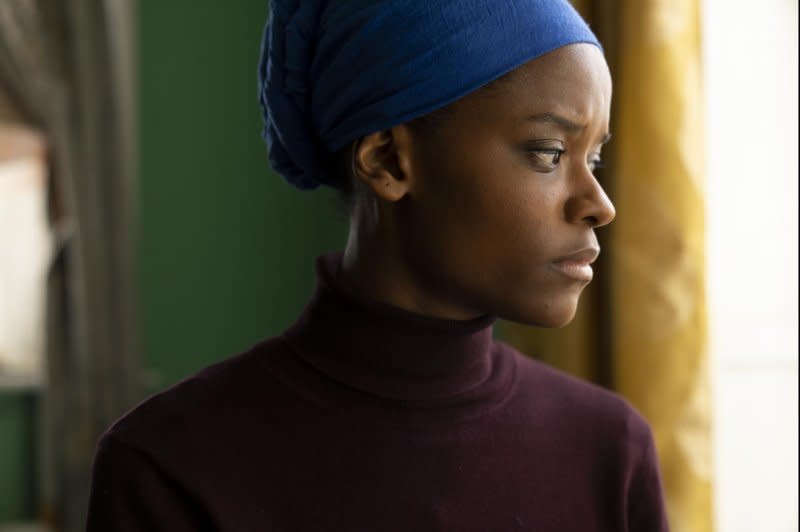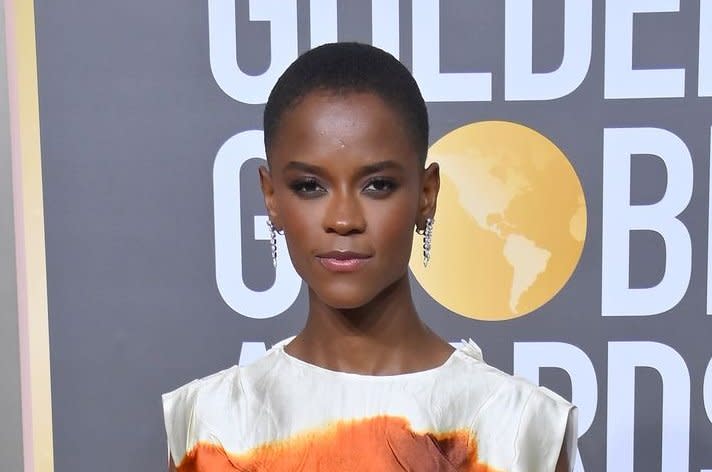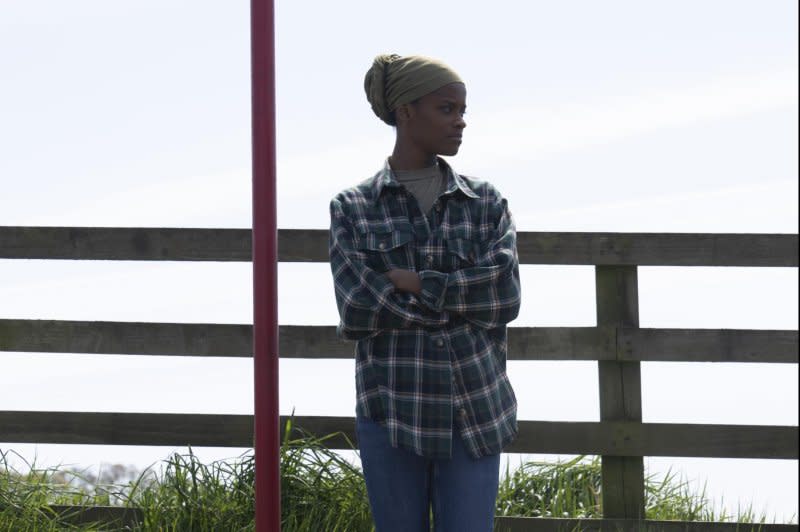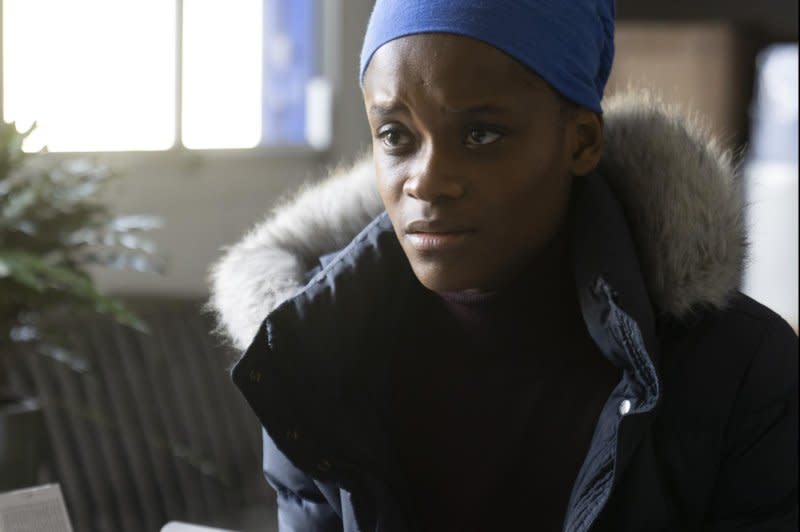Therapy helped Letitia Wright with 'Aisha,' subsequent roles

- Oops!Something went wrong.Please try again later.
LOS ANGELES, May 10 (UPI) -- Letitia Wright said therapy helped her deal with the emotional weight of her character in Aisha, in theaters and digital video-on-demand Friday.
Wright, 30, plays a Nigerian refugee going through Ireland's direct provision system for immigration. The direct provision system grants potential immigrants housing and an allowance, but also requires them to follow strict protocols while attending hearings over months and years,
"Carrying the truth that so many women have experienced what Aisha's going through, just the emotional aspects of it all, that was tough," Wright told UPI in a recent Zoom interview.
Wright said she found speaking to a therapist and her friends about the role helpful. Once she completed filming, Wright said, she had to trust that she had done right by Aisha.
"I gave to her as best as I could," Wright said, adding that now Aisha can "live on without me."

That therapy was so productive, she said, that she continues to incorporate it in her work.
"It's been really helpful for me to process characters and let them go," Wright said.

Aisha begins with Aisha living in a government-funded group home and working at a beauty salon. She has fled Nigeria, where loan sharks killed her father and continue to look for her and her mother.
Wright, who is Guyanese, said she spoke with many women who had been through the direct provision system.

"I understood the positives and the negatives of it," Wright said. "They will tell you there's always some type of obstacle, and you have to be very strong to overcome it."
The film shows such obstacles as Aisha waits for a decision on her appeal to remain in Ireland. The front desk clerk makes her wait to receive her mail until she is nearly late for her bus to work.

Aisha also struggles to get halal food for her diet, and her supervisor moves her to a different facility with no transportation to her job. Wright said such frustrations are common in the direct provision system.
"It can break your spirit day after day," Wright said. "It's hard to feel safe and it's hard to feel like you're being heard when someone's clearly ignoring you."

At Aisha's immigration hearings, she must recount the violent incidents over and over that made her flee Nigeria. Immigration agents scrutinize her story for any inconsistencies from one telling to the next.
"If you get anything wrong, they label it as a lie," Wright said. "What's being misunderstood is what trauma does to the mind and to your memory, too."
Wright said trauma requires a more complex understanding than yes or no, right or wrong answers to questions. Wright said remembering traumatic stories in such detail also slows the healing process for survivors like Aisha.
"The process of trying to move on is really tough because they require you to know it in detail and not make a mistake," Wright said. "The scrutiny is quite harsh."
Ireland's immigration officers also suggest Aisha should trust in the protective services offered by the Nigerian government. Wright said she believed the immigration officers meant well, but Aisha struggles to explain the reality that she would be vulnerable if she returned.
"If home were safe, she definitely will be home because she loves her home," Wright said. "She's trying to bring them into her world."
Wright said the direct provision system is something most people will never experience themselves. Through showing Aisha's challenges in the system, Wright said, she hopes the film makes others care about the struggles of people like Aisha.
"So people are more educated, more informed and they can have more compassion for people who experience it," she said.
Aisha is the kind of independent film Wright was making before she joined the Marvel Cinematic Universe. In the Marvel films, Wright plays Shuri, Black Panther's sister.
Before 2018's Black Panther, Wright starred in films like Urban Hymn and Victim, and episodes of British series Top Boy, Humans, Black Mirror and Doctor Who.
"Where the good stories are, I want to be there," Wright said.
Next, Wright is preparing to play boxer Ramala Ali in the film, In the Shadows.
"She became one of the first ever Muslim national champions of the U.K.," Wright said. "Now she's on her way to getting her world title."

